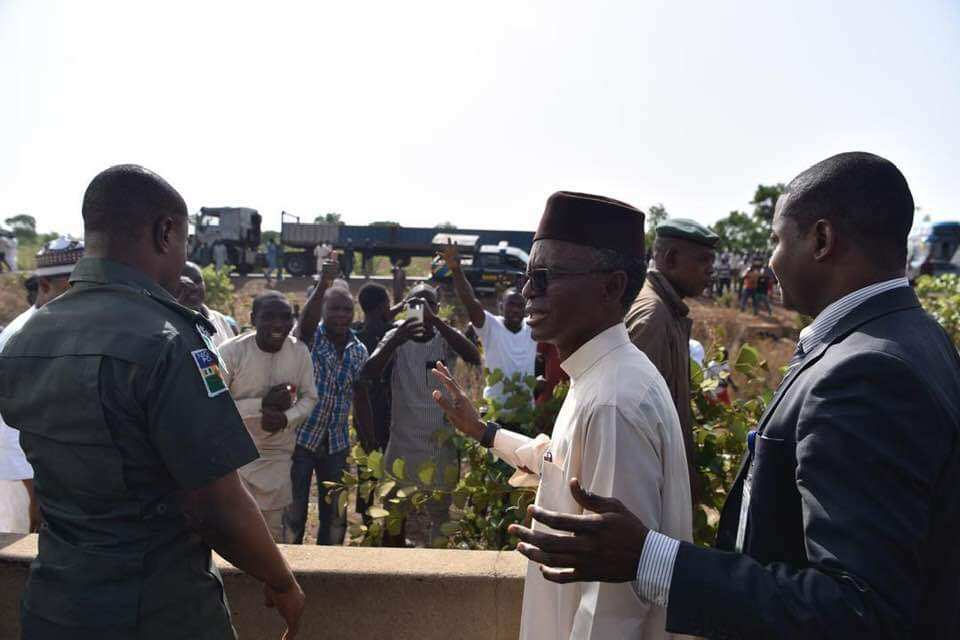- Governor Nasir El-Rufai’s convoy foiled an attempted kidnapping along Kaduna-Abuja road on Wednesday, April 3
- The governor reportedly sighted dozens of vehicles parked by frightened citizens at Akilubu village and was intimated that kidnappers were ahead
- The governor’s security detail sprung into action and cleared the criminals off the road; after which he directed that wounded travelers be rushed to the nearest hospital
An attempted kidnapping of motorists along Kaduna-Abuja road was foiled by the convoy of Kaduna governor, Nasir El-Rufai, on Wednesday afternoon, April 3.
According to Premium Times, the governor’s media aide, Samuel Aruwan, sent out a press statement making the development public.
READ ALSO: Senate counters Buhari on refunds to Delta, Taraba
Legit.ng gathers that Aruwan disclosed that while enroute to Abuja, the governor sighted dozens of vehicles parked by citizens at Akilubu village around 3:40pm. He said the villagers were alarmed that kidnappers were ahead.
The statement read: “Security operatives in the governor’s convoy advanced and cleared the road of the criminals who fled into the forest.
“After the clearing the road (sic), Governor El-Rufai directed that travellers who had been wounded by the criminals be rushed to the nearest hospital.
“The governor also directed security agencies to intensify patrols and permanently clear the road of the bandits.”
See photos from the incident:

Governor El-Rufai walks with his aides as they inspect the scene of the attempted kidnap (Photo credit: Twitter: @MG_Maigamo)
Source: Twitter

The governor chats with a security personnel on the scene (Photo credit: Twitter: @MG_Maigamo)
Source: Twitter

The governor's security aides pictured chatting (Photo credit: Twitter: @MG_Maigamo)
Source: Twitter

A young man carries an apparently injured victim (Photo credit: Twitter: @MG_Maigamo)
Source: Twitter
PAY ATTENTION: Install our latest app for Android, read best news on Nigeria’s #1 news app
Meanwhile, Legit.ng previously reported that the police command in Kaduna state said that reports of an alleged kidnap of 30 people along the Abuja-Kaduna expressway was fake news and should not be believed.
Deputy Superintendent of Police (DSP) Yakubu Sabo, the command’s public relations officer, stated this in a statement in Kaduna on Tuesday, April 2.
Sabo said the attention of the command was drawn to the fake news going round on social media that about 30 people were abducted along Abuja-Kaduna expressway on Monday, April 1 as their vehicles were abandoned by road side.
NAIJ.com (naija.ng) -> Legit.ng: Same great journalism, upgraded for better service!
Nigerians speak angrily about alleged kidnappers caught in Lagos - on Legit TV:
Source: Legit.ng
from Nigeria News today & Breaking Naija news ▷ Read on Legit.ng 24/7 https://ift.tt/2FZuT3W
via EDUPEDIA24/7
Comments
Post a Comment